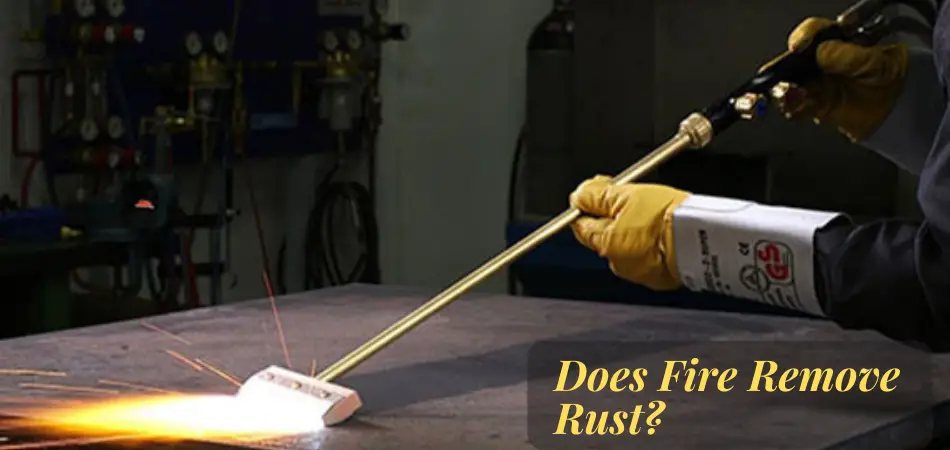Rust is a form of corrosion and is often associated with metal. In its simplest sense, it is the process by which iron and its alloys corrode due to incomplete combustion. While there are several proven ways to get rid of rust, some believe the fire can do the wonder but does fire remove rust?
Yes, it does remove rust. Fire may not be an obvious way to remove rust, but it is effective. The blast of heat passes oxygen through the metal, burning off the rust while leaving the original surface unharmed. You can use this method effectively with non-galvanized steel, though it is not exactly safe or practical.
Fire rust removal is an old method that is only recommended when other methods will not work. While fire will not reverse rust, it can remove the loose flakes of rust that are ready to come off. It also removes dirt and grease from the surface at the same time. The process is fast and easy too.
As you read further, you will understand what flame cleaning is, why rusting occurs, the negative effects of rusting, and some of the techniques you can use to remove rust.
Contents
What Is Flame Cleaning?
Flame cleaning which can also be referred to as flame gouging is a cleaning process where a fiercely hot oxyacetylene flame is passed over a steel or metallic surface to clean it. The heat action and reducing effect of the flame generated by the hot oxyacetylene helps to get rid of rust, making the metal’s surface fit for brushing and painting purposes.
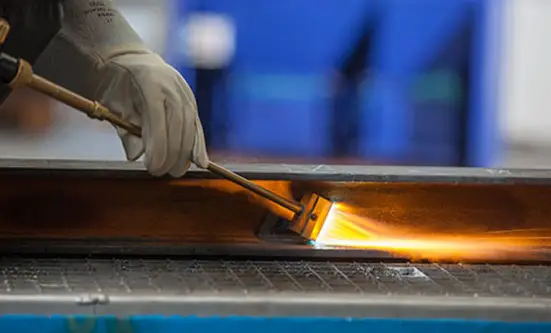
Why Does Rusting Occur?
Rusting occurs on iron or iron alloy when it gets exposed to oxygen in the presence of moisture. This reaction doesn’t happen at once, it takes a reasonable amount of time for it to be completed.
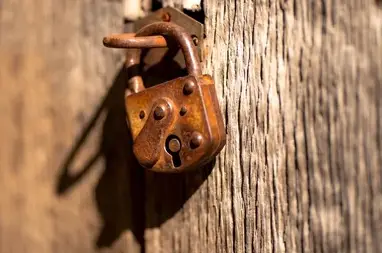
During the process, oxygen atoms will react with iron atoms to form iron oxides that weaken the bond holding iron atoms together. This corrosion reaction of iron increases iron’s oxidation state which is followed immediately by loss of electrons.
Negative Effects of Rusting
Rusting as a natural phenomenon poses more danger to nature and humans in the environment.
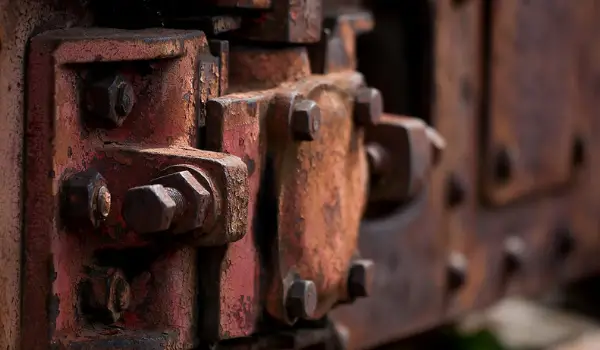
Some of the negative effects of rusting are as follows:
- A lot of infrastructures and buildings constructed with concrete experience structural failure for a long time due to the rusting of iron that was used in its construction.
- Bacteria that cause tetanus often find a breeding abode in rusted iron, and getting a cut that pierces the skin from these metals can be dangerous to health.
- Rusting iron no longer has the needed properties of iron because rusting makes iron to be weak and flaky, reducing its appearance, tensile strength, and ductility.
- The insides of metallic water tanks and pipes are degraded by rusting since it occurs at a fast rate in the presence of moisture or water.
- The rusting of iron used to construct railways, automobiles, etc can lead to the damage of these structures.
Other Useful Techniques for Removing Rust
Rust is an unwanted phenomenon that keeps occurring on almost every metallic object or item we own, and so, getting rid of it is of utmost importance.
Aside fire, here are other useful techniques or methods you can use to get rid of that rust on the surface of your metallic household items:
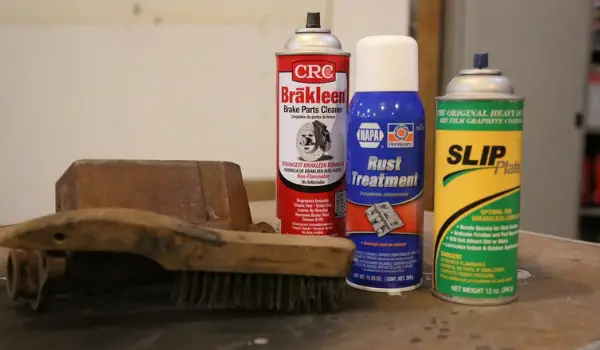
- Acids: Acids over time have proven to be helpful when it comes to rust removal and possible control. It works well and gives desired results but caution needs to be taken when using them because they are hazardous to health. Wearing protective equipment and applying safety precautions when using acids to remove rust are important. After use, acid residues on the surface of the affected material must be rinsed vigorously with clean water severally, because even though acids help to remove rust from surfaces, they can also attack these materials when in contact with it, and that will lead to damages. Also, make sure that you dispose of unused acids or leftovers appropriately to avoid causing harm to others.
- Heat: The heat from fire flames can also be used to remove rust. To do this, use an acetylene torch or similar equipment to heat the affected part with high heat. On heating, the rust will start to break off, but in a case where it didn’t, you can use a hammer to hit it. Bear in mind that this method should not be used on plastic parts because the heat can melt the plastic.
- Electrolytic removal of rust: This technique makes use of electric current to set up a reaction between iron oxide and the anode and cathode of the electrolyte. This technique can take up to seven days before it can remove rust effectively.
Frequently Asked Questions(FAQs)
Can Blowtorch Remove Rust?
Blowtorch itself cannot remove rust, it’s just a piece of equipment, but the flame that comes from it can help you remove hard rust from finished metalwork.
Instead of using a wire brush to scrub the surface of the metal which might damage or make it rough, you can use heat from a blowtorch to remove the rust if you are sure it won’t destroy the ironwork.
Can Rust Be Removed from a Fire Pit?
For rust removal from a fire pit, use white vinegar or natural methods like scrubbing the fire pit with steel wool. Also, using a chemical-based rust dissolver can help you remove rust from a fire pit.
After removing the rust, repaint and reseal the fire pit so that the rust will not reoccur again.
Does Heat Enhance Rusting?
Heat which can also be referred to as temperature plays a major role in the rate at which metal rust. Generally, an increase in the temperature of the environment where rusting is taking place means an increase in the rate of corrosion.
Therefore, temperature which can be influenced by weather can affect the rate at which rusting occurs.
Conclusion
The heat from a hot oxyacetylene flame can help to get rid of rust by focusing it directly on the affected part to enable the rust to break off. In a case where the rust didn’t break off, a hammer can be used to complete the process.

